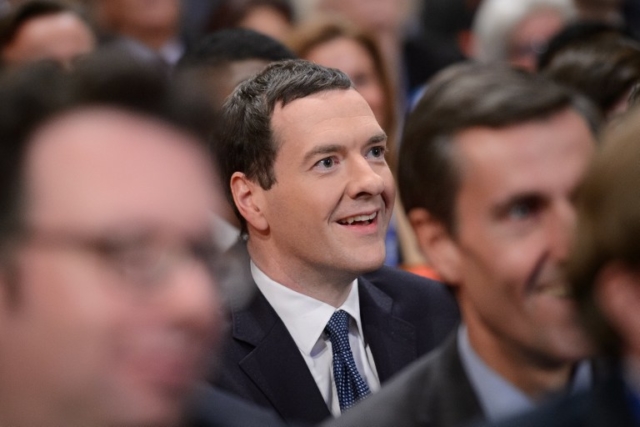CCTV America’s Shraysi Tandon sat down with George Osborne, the U.K. Finance Minister, and asked him about London’s role garnering Chinese investment and partnerships.
The United Kingdom will be the first country to issue a renminbi bond outside of the Chinese mainland, Osborne said.
“We’ve just appointed the banks to start the marketing of that sovereign bond and we’re going to raise renminbi to put in our foreign exchange reserves, and I think that tells you two things,” Osborne said. “First, that the renminbi is an increasing national currency and this is a big step in that internationalization process, that a major western economy like the UK is choosing to do this, and second it sends a very clear signal that London as a financial center wants to be at the heart of that internationalize process.”
Osborne said the latest movements are part of an agenda he’s pursued to ensure that the largest western offshore renminbi center is in the United Kindgom. He also spoke about the latest partnership with China to build high speed rail networks in the U.K.
“We want to partner on big infrastructure. We are attracting Chinese investment into our civil nuclear power, a big step for the U.K… but there may be the potential for other big infrastructure investments,” he said. “We’re now building a new high speed rail network up the spine of England, and clearly this is an area where China is interested in getting involved. We’ve agreed to create a working group between the two governments to see how we can draw on Chinese expertise and potentially Chinese finance as we go about this major infrastructure project.”
Osborne added that it’s important that the U.K. diversify it’s investments and partnerships outside of Europe to emerging economies.
“Forty percent of our exports go to the Eurozone, but I think that that historical pattern leaves us exposed in the future and I want to change that and make sure we are better connected to faster growing markets outside of Europe,” Osborne said. “Prime Minister David Cameron has put great effort in promoting trade and investment with China and with India and with Brazil and other emerging economies… It’s part of a flourishing relationship and it’s all about the U.K. reaching out to the rest of the world and not having all of our eggs in one basket.”

 CGTN America
CGTN America
 British Chancellor George Osborne is pictured as he listens to a speech by Mayor of London Boris Johnson on the third day of the annual British Conservative Party conference in Birmingham, central England, on September 30, 2014. AFP PHOTO/LEON NEAL
British Chancellor George Osborne is pictured as he listens to a speech by Mayor of London Boris Johnson on the third day of the annual British Conservative Party conference in Birmingham, central England, on September 30, 2014. AFP PHOTO/LEON NEAL
